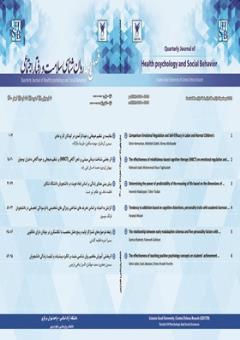Structural model of psychological distress based on insecure attachment style with the mediating role of alexithymia and moderating mindfulness and self-compassion in heart patients
Subject Areas : Psychology
Fatemeh Eslami bidgoli
1
,
Mohammad Reza Tamannaeifar
2
*
![]()
1 - Department of Psychology, Faculty of Humanities, University of Kashan, Kashan, Iran.
2 - Department of Psychology, Faculty of Humanities, University of Kashan, Kashan, Iran
Keywords: psychological distress, mindfulness, insecure attachment style, self-compassion, alexithymia,
Abstract :
Heart disease is the first cause of death in the world, and psychological status can play an important role in the exacerbation and relaps of this disease. Therefore, it is essential to identify psychological factors affecting the condition of patients with heart disease. The present study aimed to investigate the psychological distress of heart patients based on insecure attachment style with the mediating role of alexithymia and the moderating role of mindfulness and self-compassion. The current research was structural equation modeling. The statistical population of this research included all coronary and heart failure patients who referred to the medical centers of Aran- Bidgol and Kashan cities in 2022-2023. 200 heart patients were selected by convenience sampling. Using psychological distress scale (DASS-21), Collins and Reed attachment style questionnaire (RAAS), alexithymia questionnaire(TAS-20), Brown and Ryan mindfulness scale questionnaire (MAAS) and self-compassion questionnaire(SCS-SF) data was collected. Data were analyzed by bootstrap method using AMOS 24. The results showed that the proposed model has a good fit. Also, the results showed that alexithymia mediates the relationship between avoidant attachment and psychological distress, and mindfulness and self-compassion have a moderating role in the relationship between alexithymia and psychological distress. According to findings, insecure attachment style plays a role in alexithymia and psychological distress of heart patients and with interventions based on mindfulness and self-compassion can help improve the health of heart patients.

